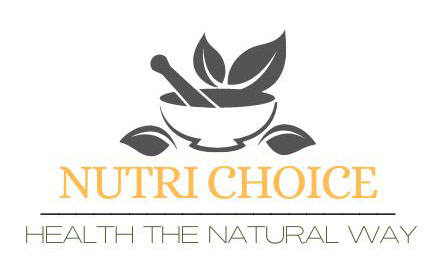What is L-Carnitine?
L-Carnitine is a naturally occurring compound that plays a vital role in energy metabolism, particularly in the transportation of fatty acids to be used as fuel in our cells. It is synthesized in our bodies from the essential amino acids lysine and methionine. However, L-Carnitine is also available as a dietary supplement and has gained popularity for its potential health benefits. In this blog post, we will delve into what L-Carnitine is, its functions in the body, and the potential advantages of supplementing with it.
1. Understanding L-Carnitine’s Functions
L-Carnitine primarily functions in the transportation of fatty acids into the mitochondria, the powerhouse of our cells. Fatty acids are a critical fuel source for producing energy, particularly during periods of prolonged exercise or fasting when glucose stores are depleted. L-Carnitine helps shuttle these fatty acids across the mitochondrial membrane, enabling them to undergo oxidation and generate ATP (adenosine triphosphate), which serves as the energy currency of our cells.
2. Types of L-Carnitine
There are several forms of L-Carnitine available, each varying in bioavailability and supplementation purposes. The most commonly utilized forms include:
L-Carnitine L-Tartrate (LCLT): This form of L-Carnitine is widely used as a dietary supplement due to its high bioavailability. LCLT has been extensively studied and is frequently associated with exercise performance, muscle recovery, and reducing muscle damage.
Acetyl-L-Carnitine (ALCAR): This form of L-Carnitine has an acetyl group attached to it, which allows it to cross the blood-brain barrier more easily. ALCAR is mainly used for cognitive support and has shown potential benefits in improving memory, promoting brain health, and alleviating age-related cognitive decline.
Propionyl-L-Carnitine (PLCAR): PLCAR is a modified form of L-Carnitine that has shown promise in improving peripheral circulation and cardiovascular health. It is commonly used to support individuals with conditions such as peripheral artery disease or congestive heart failure.
3. Dietary Sources of L-Carnitine
While our bodies can produce L-Carnitine, it can also be obtained through dietary sources. Animal products, such as meat, poultry, fish, and dairy, are rich sources of L-Carnitine. Plant-based sources, such as avocados, tempeh, and certain nuts and seeds, also contain smaller amounts of L-Carnitine. However, vegetarians and vegans typically have lower levels of L-Carnitine in their bodies compared to omnivores, which is why they might consider supplementation.
4. Potential Benefits of L-Carnitine Supplementation
Exercise Performance: L-Carnitine supplementation has been widely studied for its potential benefits in improving exercise performance. It is believed to enhance fat utilization as a fuel source, thereby sparing muscle glycogen and delaying fatigue. Studies have shown improvements in endurance, increased oxygen delivery to muscles, and reduced muscle damage and soreness following intense exercise.
Weight Management: L-Carnitine is often marketed as a weight loss supplement due to its role in fat metabolism. Research suggests that L-Carnitine supplementation may help increase fat oxidation during exercise, which can aid in weight loss efforts. However, it is important to note that the effects on weight loss are modest and should be combined with a balanced diet and regular physical activity for optimal results.
Brain Health: Acetyl-L-Carnitine (ALCAR) has shown promise in supporting cognitive function and brain health. It has been studied for its potential benefits in age-related cognitive decline, memory impairment, and neurodegenerative diseases like Alzheimer’s and Parkinson’s. ALCAR is believed to enhance neurotransmitter function, improve mitochondrial function, and protect against oxidative stress in the brain.
Cardiovascular Health: Propionyl-L-Carnitine (PLCAR) has gained attention for its potential cardiovascular benefits. It has shown promise in improving symptoms in individuals with peripheral artery disease, including increased walking distance and reduced leg pain. PLCAR is also believed to improve endothelial function, increase nitric oxide production, and enhance overall cardiovascular health.
Conclusion
L-Carnitine is a naturally occurring compound that plays a crucial role in energy metabolism by facilitating the transport of fatty acids into the mitochondria for energy production. It is available as a dietary supplement and comes in various forms, each with its specific benefits. L-Carnitine supplementation has shown potential advantages in exercise performance, weight management, brain health, and cardiovascular health. However, it is important to note that individual responses may vary, and consulting with a healthcare professional is advisable before starting any supplementation regimen. Additionally, it is always best to prioritize a balanced diet and healthy lifestyle to ensure adequate levels of L-Carnitine and overall well-being.
Got Questions? Let Us Help!
Nutri-Choice is an all-natural health food, vitamin, and supplement store with the most affordable prices! We carry just about everything you need to maintain your health and peace, knowing that every product is chemical free and all-natural. Nutri-Choice carries multi-vitamins, minerals, immune, cardio, and diabetes support medicine, herbs, teas, natural cosmetics like shampoo, conditioner, body wash, and so much more! Give us a call today and ask about our free mail order catalog!
